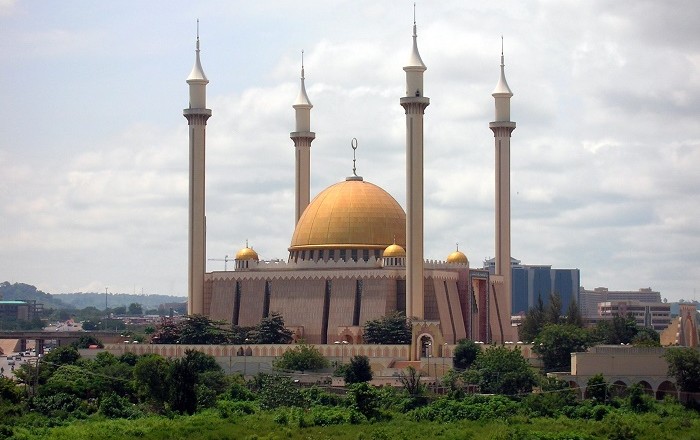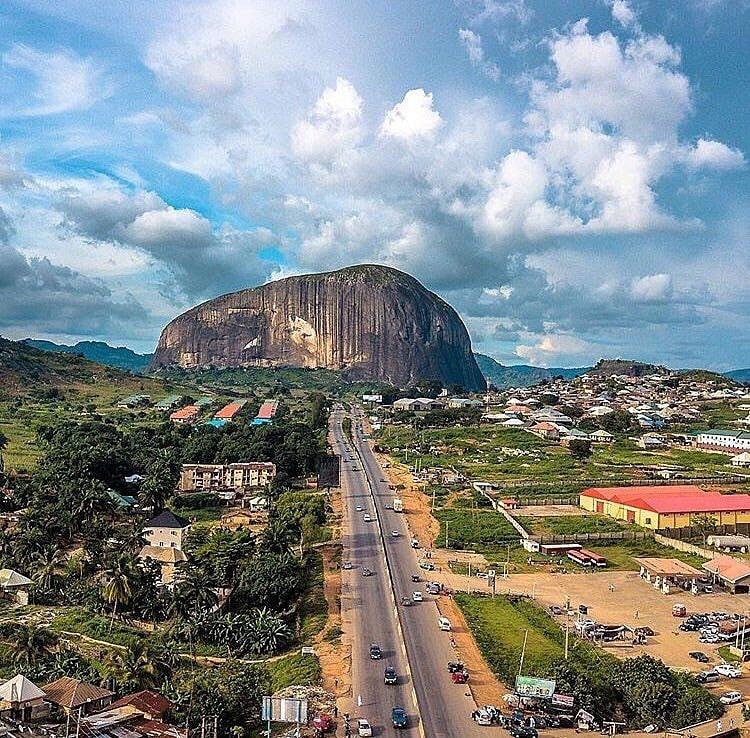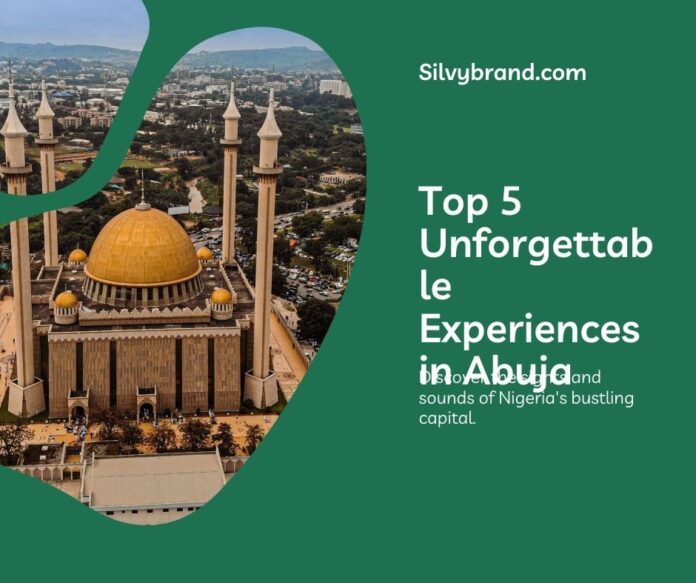Last Updated on April 3, 2024 by Silvy
Top 5 Unforgettable Experiences in Abuja, Nigeria’s Bustling Capital
Ah, Abuja. A city that vibrates with a unique blend of modern energy and rich cultural heritage. From captivating landmarks to vibrant markets and a burgeoning arts scene, Nigeria’s federal capital offers a kaleidoscope of experiences for every kind of traveler.
Whether you’re a history buff seeking ancient treasures, a nature enthusiast craving a breath of fresh air, or a foodie on a quest for culinary delights, Abuja has something special in store for you.
So, ditch the guidebooks and pack your bags for an adventure you won’t soon forget!
Unveiling Abuja’s Enchanting Essence
This isn’t your typical, run-of-the-mill city. Abuja is a place where the past whispers secrets through ancient monuments, and the present hums with a contagious energy. Imagine strolling through bustling markets overflowing with colorful fabrics and handcrafted souvenirs, then moments later, finding yourself immersed in the serene beauty of a sacred grove.
Intrigued? Buckle up, because we’re about to delve into the top 5 experiences that will leave you utterly enchanted by Abuja’s magic.

5. Immerse Yourself in Nature’s Embrace at Millennium Park
Craving a respite from the urban jungle? Look no further than Millennium Park, a sprawling green oasis nestled in the heart of the city.
This haven of tranquility boasts meticulously landscaped gardens, a serene man-made lake perfect for paddle boating, and walking trails that weave through pockets of indigenous flora.
Unwind by the Lake: Spread out a picnic blanket under the shade of a towering tree and soak in the calming ambiance. Let the gentle lapping of the lake water lull you into a state of relaxation, and breathe in the crisp, fresh air – a welcome change from the city’s bustling energy.
Explore the Walking Trails: Lace up your walking shoes and embark on a journey of discovery along the park’s well-maintained trails. Keep your eyes peeled for a diverse array of birdlife flitting through the trees, and immerse yourself in the tranquility of nature’s embrace.
Paddle Your Way to Serenity: Feeling adventurous? Rent a paddleboat and glide across the tranquil surface of the lake. This unique perspective allows you to appreciate the park’s beauty from a different angle, creating memories that will last a lifetime.
Millennium Park: A Haven for All
Whether you seek a quiet escape with a good book or an active afternoon exploring the park’s many facets, Millennium Park caters to all. It’s the perfect spot for families to spend quality time together, couples to enjoy a romantic stroll, or solo travelers to find a moment of peace amidst the city’s vibrancy.
4. Delve into Nigeria’s Artistic Tapestry at the Nike Art Gallery
Abuja’s artistic soul comes alive at the Nike Art Gallery, a haven for contemporary Nigerian art.
Founded by renowned collector and philanthropist Nike Okundaye, this prestigious gallery showcases an impressive collection of sculptures, paintings, textiles, and mixed-media installations by some of Nigeria’s most talented artists.
A Journey Through Artistic Expression: Step inside the gallery’s expansive halls and prepare to be transported on a captivating journey through Nigeria’s rich artistic heritage. Explore diverse artistic styles, delve into the socio-political commentaries embedded in some pieces, and marvel at the sheer creativity on display.
Engaging with the Masters: The Nike Art Gallery boasts an impressive collection of works by established Nigerian masters like Ben Enwonwu, Yusuf Grillo, and Bruce Onobrakpeya. These pieces offer a glimpse into the evolution of Nigerian art and provide valuable insights into the country’s history and culture.
Spotlighting Emerging Talents: The gallery also shines a light on the works of up-and-coming Nigerian artists, fostering the growth of the nation’s contemporary art scene. Here, you’ll encounter fresh perspectives, innovative techniques, and a vibrant energy that promises an exciting future for Nigerian art.
More Than Just Art: The Nike Art Gallery extends its reach beyond mere exhibition. They regularly host workshops, artist talks, and educational programs, providing a platform for cultural exchange and fostering appreciation for the arts.
A Must-Visit for Art Aficionados: Whether you’re a seasoned art collector or simply someone with a curious mind, the Nike Art Gallery is a must-visit on your Abuja itinerary. It’s a place to be captivated by artistic brilliance, gain a deeper understanding of Nigerian culture, and perhaps even discover a new favorite artist.


3. Witness the Architectural Grandeur of the National Mosque and National Christian Centre
Abuja’s skyline is not only dominated by the imposing Aso Rock, but also by two architectural marvels that stand as testaments to Nigeria’s religious diversity – the National Mosque and the National Christian Centre.
National Mosque: A Beacon of Faith
The architectural marvel that is the National Mosque is a sight to behold. Gleaming white minarets pierce the sky, their graceful curves reminiscent of desert flowers. Intricate Arabic calligraphy adorns the facade, while the expansive prayer hall within can accommodate a staggering number of worshippers.
A Journey Through Islamic Art: Take a guided tour (offered at specific times) to explore the mosque’s intricate details. Marvel at the exquisite tilework, the ornately carved wooden doors, and the breathtaking chandeliers that illuminate the vast interior space. This experience offers a fascinating glimpse into Islamic art and architecture.
National Christian Centre: A Symbol of Unity
Standing tall across from the National Mosque is the National Christian Centre, a magnificent edifice that embodies the spirit of religious tolerance. Its modern, yet inspiring design features a striking dome and stained glass windows that bathe the interior in colorful light.
A Space for Interfaith Dialogue: More than just a place of worship, the National Christian Centre serves as a platform for interfaith dialogue and understanding. Here, people of all faiths can come together to celebrate their shared humanity and promote peaceful coexistence.
A Testament to Tolerance: Visiting both the National Mosque and the National Christian Centre within such close proximity provides a powerful message of religious tolerance and unity in diversity – a core value that Nigeria cherishes.

2. Hike the Majestic Zuma Rock for Breathtaking Panoramas
A trip to Abuja wouldn’t be complete without conquering the iconic Zuma Rock, a monolithic monolith (yes, you read that right) that rises abruptly from the otherwise flat plains surrounding the city.
This natural wonder, estimated to be over 600 million years old, holds historical and spiritual significance for the people of Nigeria.
Challenge Accepted: For the adventurous souls, scaling Zuma Rock is an exhilarating experience. Several well-defined hiking trails, ranging from moderate to challenging, lead to the summit. As you ascend, be prepared for breathtaking views of the surrounding landscape and a sense of accomplishment that washes over you upon reaching the top.
A Spiritual Significance: Zuma Rock is believed to possess spiritual significance for some indigenous communities. Legends abound about its origins and protective powers. Standing at the foot of this behemoth, you can’t help but feel a sense of awe and respect for the natural world’s grandeur.
A Birdwatcher’s Paradise: Keep your eyes peeled for a diverse array of birdlife that calls Zuma Rock home. From soaring eagles to vibrant rollers, the skies above the rock offer a delightful spectacle for nature enthusiasts.
Not for the Faint of Heart: While the views from the summit are undeniably rewarding, the hike itself is not for the faint of heart. Ensure you wear appropriate footwear, carry sufficient water, and embark on the climb during cooler hours of the day. Alternatively, guided tours are available for those who prefer a more structured experience.
A Unique Abuja Experience: Hiking Zuma Rock is an experience that goes beyond simply checking a box on your travel itinerary. It’s a chance to challenge yourself physically, connect with nature’s power, and gain a deeper appreciation for the rich cultural heritage of Abuja.
1. Explore the Bustling Heart of Abuja at the Wuse Market
Immerse yourself in the vibrant energy of Abuja at the Wuse Market, a sprawling labyrinth of stalls overflowing with everything imaginable.
From locally-made crafts and textiles to fresh produce and culinary delights, the Wuse Market is a sensory overload in the best way possible.
A Shopper’s Paradise: Bargain hunters, rejoice! The Wuse Market is a haven for those seeking unique souvenirs and local treasures. Stroll through aisles overflowing with colorful fabrics, intricately carved wooden sculptures, and handcrafted jewelry. Don’t be afraid to haggle – it’s all part of the experience!
A Culinary Adventure: Foodies, prepare to tantalize your taste buds. The Wuse Market is a haven for street food vendors offering an array of delectable Nigerian delicacies. From piping hot jollof rice to savory suya (barbecued meat), be prepared to embark on a delicious culinary adventure.
A Cultural Tapestry: Beyond the shopping and food, the Wuse Market offers a glimpse into the heart and soul of Abuja. Interact with friendly vendors, soak in the lively atmosphere, and witness the traditional art of bargaining firsthand. This cultural immersion is an invaluable part of any Abuja experience.
Tips for Navigating the Market: The Wuse Market can be overwhelming, especially for first-timers. Here are some helpful tips:
- Dress comfortably: The market can get crowded and hot, so wear breathable clothing and comfortable shoes.
- Carry cash: While some vendors may accept cards, it’s always best to have cash on hand for bargaining.
- Learn a few basic Hausa phrases: Hausa is the most widely spoken language in Northern Nigeria. Learning a few basic greetings and bargaining phrases will go a long way.
- Embrace the experience: Don’t be afraid to get lost in the maze-like alleys and soak up the vibrant atmosphere. The Wuse Market is an adventure waiting to be explored.
Unveiling the Soul of Abuja: The Wuse Market is more than just a place to shop – it’s a pulsating microcosm of Abuja itself. Here, you’ll encounter the warmth of the Nigerian people, the rich tapestry of the nation’s culture, and the undeniable energy that defines this captivating city.

Embark on a Culinary Journey Through Abuja’s Delights
Abuja’s cuisine is a vibrant tapestry of flavors, influenced by the country’s diverse ethnicities and rich agricultural heritage. Venture beyond the Wuse Market and delve into the city’s culinary scene for an unforgettable taste of Nigeria.
A Fusion of Flavors: Nigerian cuisine is known for its bold and spicy flavors. Common ingredients include tomatoes, peppers, onions, and a generous use of herbs and spices. Expect a delightful interplay of savory, sweet, and smoky notes in many dishes.
Must-Try Dishes: No culinary adventure in Abuja is complete without sampling some of these local favorites:
- Jollof Rice: This fragrant one-pot rice dish is a staple in Nigerian cuisine. Typically made with tomatoes, peppers, spices, and meat or fish, jollof rice comes in countless variations, each boasting its own unique flavor profile.
- Suya: Thinly sliced meat (usually beef, chicken, or ram) is skewered and grilled to perfection over hot coals. Suya is typically seasoned with a special spice blend called suya pepper, giving it a smoky and slightly spicy flavor.
- Egusi Soup: A rich and hearty soup made with ground melon seeds, leafy greens, and various meats or fish. Egusi soup is often served with pounded yam or fufu, a starchy dough made from cassava.
- Agege Bread: This deep-fried dough bread has a crispy exterior and a soft, fluffy interior. Enjoy it on its own or use it to scoop up delicious stews and soups.
- Plantain Dishes: Plantains, a close relative of the banana, are a versatile ingredient in Nigerian cuisine. They can be boiled, fried, roasted, or pounded into flour. Popular plantain dishes include fried plantains (dodo), plantain chips (chips), and plantain porridge (bole).
Fine Dining or Street Food? Abuja caters to all palates and budgets. Michelin-starred restaurants serving globally-inspired cuisine sit alongside bustling street food stalls offering local delicacies. Don’t be afraid to experiment – you might just discover your new favorite dish!
A Culinary Adventure Awaits: Exploring Abuja’s food scene is a delightful adventure for the senses. Embrace the bold flavors, savor the fresh ingredients, and connect with the rich culinary heritage of Nigeria. You’ll leave Abuja with a newfound appreciation for Nigerian cuisine and a happy stomach to boot!

Experience Abuja’s Enthralling Nightlife Scene
After a day packed with exploration and cultural immersion, Abuja’s nightlife scene beckons with its infectious energy and diverse offerings.
Whether you crave pulsating dance clubs, lively bars with local music, or rooftop lounges with stunning city views, Abuja has something for every night owl.
Unwind at a Rooftop Bar: Start your evening soaking in the city’s vibrant tapestry from a rooftop bar. Many hotels and establishments boast stunning rooftop spaces with breathtaking panoramic views, offering the perfect setting to unwind with a refreshing cocktail and watch the city come alive under the starlit sky.
Move to the Groove at a Dance Club: For those seeking an energetic night out, Abuja’s dance clubs pulsate with infectious rhythms. From Afrobeats to international club hits, get ready to move your body and lose yourself in the music. Popular areas like Wuse and Gwarinpa offer a concentration of happening nightclubs.
Experience Live Music: Immerse yourself in the local music scene by visiting a bar or lounge featuring live music performances. Nigerian music is as diverse as its people, with genres like Afrobeats, highlife, and juju offering a vibrant and captivating soundscape. These evenings provide a unique opportunity to connect with local culture and discover talented Nigerian musicians.
Relax at a Local Bar: For a more relaxed evening, head to a local bar and mingle with friendly residents. Sample a cold Nigerian beer like Star or Gulder, and engage in conversations about life in Abuja. The warm hospitality of the Nigerian people is sure to make you feel welcome.
Safety First: Like any major city, it’s always wise to exercise caution while exploring Abuja’s nightlife scene. Stick to well-lit areas, avoid deserted streets, and keep an eye on your belongings. If you’re unsure about a particular venue, ask your hotel concierge for recommendations.
A Night to Remember: From rooftop cocktails with breathtaking views to energetic dance clubs and intimate live music venues, Abuja’s nightlife scene offers something for everyone. So, put on your dancing shoes, embrace the city’s vibrant energy, and create a night to remember in Nigeria’s captivating capital.
Conclusion
Abuja is a city that pulsates with life, offering a captivating blend of modern marvels, rich cultural heritage, and a vibrant energy that’s contagious.
From scaling the majestic Zuma Rock to exploring the bustling Wuse Market and delving into the city’s delectable cuisine, Abuja promises an unforgettable experience for every kind of traveler.
So, pack your bags, embrace the spirit of adventure, and get ready to discover the magic that awaits in Nigeria’s heartland!
FAQs
What’s the best time to visit Abuja?
Abuja enjoys a tropical savanna climate with distinct wet and dry seasons. The dry season, from November to March, offers pleasant weather with minimal rainfall. This is generally considered the best time to visit. However, the shoulder months (April, May, October) can also be enjoyable with slightly lower hotel rates.
Is Abuja a safe city to visit?
Like any major city, Abuja has areas of petty crime. However, by exercising common sense precautions like staying in well-lit areas at night and keeping an eye on your belongings, you can minimize risks. It’s always advisable to consult the latest travel advisories for Nigeria before your trip.
What currency is used in Abuja?
The official currency in Nigeria is the Nigerian Naira (NGN). While some high-end establishments may accept credit cards, it’s recommended to carry cash for most transactions, especially at markets and street vendors. Currency exchange services are readily available throughout the city.
How do I get around Abuja?
Abuja has a well-developed transportation network. You can choose from taxis, ride-hailing apps like Uber and Bolt, or the Abuja light rail system. It’s also possible to rent a car for added flexibility, but be prepared for congested traffic during peak hours.
What are some essential phrases to know in Hausa?
Hausa is the most widely spoken language in Northern Nigeria. Learning a few basic phrases can go a long way in your interactions with locals. Here are a few helpful ones:
- Sannu (Hello)
- Na gode (Thank you)
- Nawa ne sunan ka? (What is your name?)
- Ina (Where is)?
- Yawwa (Yes)
- A’a (No)
Reference Links
- Lonely Planet Nigeria: https://www.lonelyplanet.com/nigeria
- Nigeria Tourism Development Corporation: https://tournigeria.gov.ng/
- Federal Capital Territory Administration: http://fcta.gov.ng/


